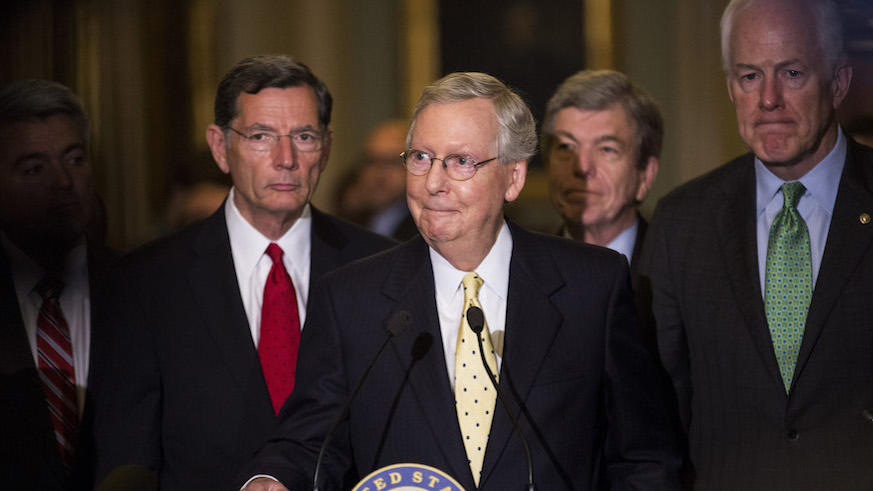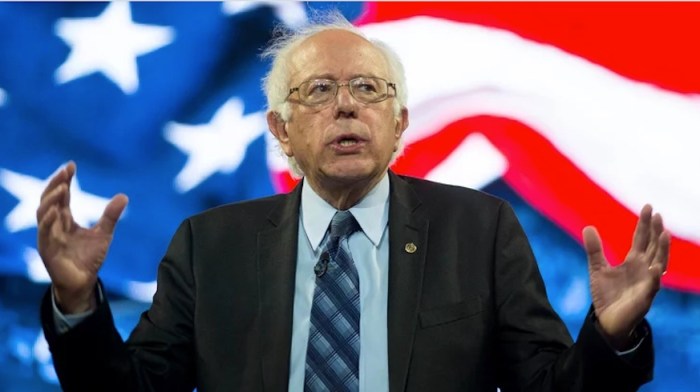Senate Republicans’ push to repeal and replace Obamacare is dead, for now, in large part thanks to moderates who found replacement legislation too tough and ultra-conservatives who didn’t think the Senate healthcare bill’s cuts went far enough.
Republican leaders are now struggling to whip up the votes needed to pass any bill, including their most recent plan that focuses more on repealing than replacing. They would need at least 50 votes, in which case Vice President Mike Pence would cast the tiebreaking vote in the split chamber.
Every Democrat has pledged a “no” vote on the Republican healthcare bill, pointing to deep cuts in Medicaid and a plan to withhold funding from Planned Parenthood for a year.
The Republican healthcare bill, known as the Better Care Reconciliation Act, would have allowed states to opt out of essential health benefits required under former President Barack Obama’s Affordable Care Act, like preventative care and maternity care.
Frustrated by wavering support on their own side of the aisle, Republicans have proposed a straight repeal of the ACA, but alas, they don’t have the votes to do that either.
Without a shred of Democratic support, Republicans can only afford to lose two votes in their camp.
Their bill was widely unpopular with the public after a Congressional Budget Office analysis showed that more than 22 million people would lose their coverage within 10 years.
Just 17 Republican senators expressed their intention to support the bill, 24 were unclear, and 11 have said they are either concerned with the bill or will vote “no” if there aren’t further changes.
Meet the Republicans blocking the GOP effort at healthcare repeal:
Sen. Susan Collins of Maine
Collins opposed the measure because of how many people would lose insurance due to deep cuts to Medicaid. When the newest version of the bill was released last week, she tweeted that the Medicaid cuts were still there, and she would still vote “no.”
Collins also does not support repealing Obamacare without a replacement. She voted against a similar proposal in 2015 and says it’s not constructive.
Still deep cuts to Medicaid in Senate bill. Will vote no on MTP. Ready to work w/ GOP & Dem colleagues to fix flaws in ACA.
— Sen. Susan Collins (@SenatorCollins) July 13, 2017
I will vote no on the motion to proceed to repeal the Affordable Care Act without a replacement. I voted against this same proposal in 2015. pic.twitter.com/Szuke5zYNL
— Sen. Susan Collins (@SenatorCollins) July 18, 2017
Sen. Rand Paul of Kentucky
At the opposite end sits Paul, who thinks the Senate healthcare reform bill keeps too much of President Obama’s Affordable Care Act in place. On June 27, the senator tweeted, “The bill is currently not repeal and needs major improvement.”
I’ll discuss w/ him how to fix bill & get more to a YES on real repeal, things I’ve tried to tell Senate leaders with no result so far
— Senator Rand Paul (@RandPaul) June 27, 2017
Sen. Mike Lee of Utah
Like Paul, Lee doesn’t think the BCRA goes far enough to reform Obamacare policies.
In a surprise press release on Monday, Lee said he would not support the bill, “In addition to not repealing all of the Obamacare taxes, it doesn’t go far enough in lowering premiums for middle class families; nor does it create enough free space from the most costly Obamacare regulations.”
The American people and @realdonaldtrump deserve a real repeal bill. We’ll keep fighting until we get one.
— Mike Lee (@SenMikeLee) July 18, 2017
Sen. Jerry Moran of Kansas
Moran also issued a statement on Monday withdrawing his support from the bill, saying, “If we leave the federal government in control of everyday healthcare decisions, it is more likely that our healthcare system will devolve into a single-payer system, which would require a massive federal spending increase.”
My full statement opposing this version of BCRA: pic.twitter.com/CUq4Kibe0I
— Jerry Moran (@JerryMoran) July 18, 2017
After the four senior senators said they would not support the BCRA, Senate Majority Leader Mitch McConnell floated the idea of ditching the reform effort altogether and just going for a straight repeal of the ACA – that idea wasn’t any more popular.
Sen. Lisa Murkowski of Alaska
Murkowski said on Twitter the Senate should engage in bipartisan efforts to address current healthcare failures rather than just focus on repealing.
My recent statement on the Senate Healthcare Process: pic.twitter.com/j19Ok1KwWw
— Sen. Lisa Murkowski (@lisamurkowski) July 18, 2017
Sen. Shelley Moore Capito of West Virginia
Capito echoed Murkowski and Collins, tweeting that a repeal of current healthcare legislation would only serve to hurt people.
“I did not come to Washington to hurt people,” she tweeted.
MORE: I will only vote to proceed to repeal legislation if I am confident there is a replacement plan that addresses my concerns.
— Shelley Moore Capito (@SenCapito) July 18, 2017



















